TCF1-LEF1 co-expression identifies a multipotent progenitor cell (TH2-MPP) across human allergic diseases
- PMID: 38589618
- PMCID: PMC11849131
- DOI: 10.1038/s41590-024-01803-2
TCF1-LEF1 co-expression identifies a multipotent progenitor cell (TH2-MPP) across human allergic diseases
Abstract
Repetitive exposure to antigen in chronic infection and cancer drives T cell exhaustion, limiting adaptive immunity. In contrast, aberrant, sustained T cell responses can persist over decades in human allergic disease. To understand these divergent outcomes, we employed bioinformatic, immunophenotyping and functional approaches with human diseased tissues, identifying an abundant population of type 2 helper T (TH2) cells with co-expression of TCF7 and LEF1, and features of chronic activation. These cells, which we termed TH2-multipotent progenitors (TH2-MPP) could self-renew and differentiate into cytokine-producing effector cells, regulatory T (Treg) cells and follicular helper T (TFH) cells. Single-cell T-cell-receptor lineage tracing confirmed lineage relationships between TH2-MPP, TH2 effectors, Treg cells and TFH cells. TH2-MPP persisted despite in vivo IL-4 receptor blockade, while thymic stromal lymphopoietin (TSLP) drove selective expansion of progenitor cells and rendered them insensitive to glucocorticoid-induced apoptosis in vitro. Together, our data identify TH2-MPP as an aberrant T cell population with the potential to sustain type 2 inflammation and support the paradigm that chronic T cell responses can be coordinated over time by progenitor cells.
© 2024. Springer Nature America, Inc.
Figures
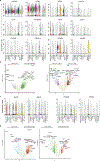
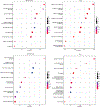
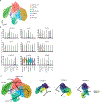
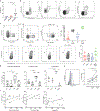
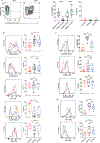
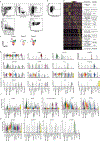

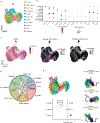
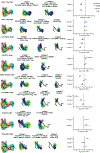
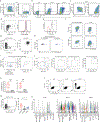
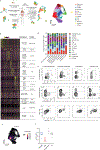
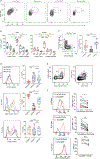
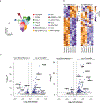



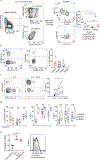
References
-
- Utzschneider DT et al. T Cell Factor 1-Expressing Memory-like CD8+ T Cells Sustain the Immune Response to Chronic Viral Infections. Immunity 45, 415–427 (2016). - PubMed
Publication types
MeSH terms
Substances
Grants and funding
LinkOut - more resources
Full Text Sources
Medical
Molecular Biology Databases
Miscellaneous

